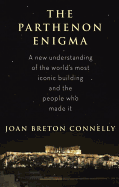 David Green (Get this book)
David Green (Get this book) In this new, refreshing look at the Hundred Years' War, Green examines the resulting reconstruction of European culture."The crucible of war forged and reforged the English and French nations into something new," writes the author in this illuminating history. This war, or series thereof, lasted from 1337 to 1453, with interruptions for short terms of peace, famine, civil strife in France and the Black Death. During that time, there would be changes everywhere, but the war began as a feudal and dynastic struggle, as Edward III of England laid claim to the French crown. It ended with a new sense of national identity in both countries as they sought to maintain or reclaim territory, particularly the former Angevin possessions that covered most of modern-day France. Green holistically explores aspects of the war's effects with exceptionally thorough research on subjects as diverse as the Catholic Church, women, peasants and even language.--Kirkus































